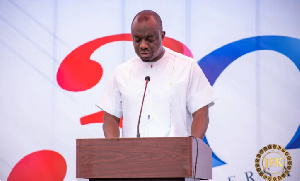Business News of Sunday, 27 August 2023
Source: dmarketforces.com
Naira crashes as FX demand overruns supply
After a show of strength across the foreign exchange (FX) market last week, the Nigerian naira has crashed amidst declining inflows of the United States (US) dollar into the official and parallel marketers.
The more the naira, the fewer products individuals and corporate organisations are getting; and the outlook for the local currency remains bleak. At the close of the trading sessions, the naira depreciated against the US dollar at the official market for importers, and exporters’ window.
In the black market, the local currency likewise declined in value. FDMQ OTC FX board showed that the exchange rate settled at N778.42 at the Investors and Exporters window. The naira lost by 0.87 per cent compared to the N771.69 it exchanged for the dollar on Thursday.
The dominant US dollar strengthened across the globe amidst de-dollarisation moves – in which the Nigerian government has shown no interest despite worsening FX reserves. More countries have started to join BRICS nations to effect a new economic order that boycotted the use of USD as the dominant currency.
According to market data, the open indicative rate closed at N773.29 to the dollar on Friday. A spot exchange rate of N799.90 to the dollar was the highest rate recorded within the day’s trading before it settled at N778.42.
The naira sold for as low as N700 to the dollar within the day’s trading. A total of 73.80 million dollars was traded at the investors and exporters window on Friday. In the parallel market, the exchange rate worsened to N905 per greenback.
The market has started to discount the apex bank’s decision to bring back bureau de change operators into the FX management fold. With a backlog of unmet US dollar demand by foreign investors, analysts believe that the Central Bank of Nigeria may find it difficult to sell forex to BDCs.
As such, speculators continue to deepen their interest as the gap or fx spread between the official and parallel market widens. Due to shortage of foreign currency, purchasing power of the naira has dropped significantly over the years and the CBN appears to have no solution to stem the tide.











